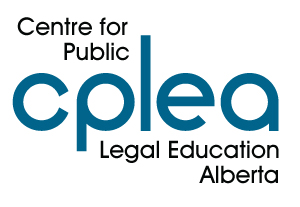LawNow is a bi-monthly digital public legal education magazine which has been published by the Centre for Public Legal Education Alberta for almost 40 years. Its articles and columns are written in plain language and take a practical look at how the law relates to the every day lives of Canadians.In each issue, LawNow’s family law column takes a look at a specific topic in this area of law and explains it clearly and concisely.
Are you looking for resources that deal with legal issues that may be of interest to parents? Listed below is a selection of resources created for parents about bullying, internet safety, adoption, maternal and paternal leave from employment, protection of children from abuse, and teaching kids about workplace safety and managing money.
Gathered on this page are resources that were developed with you in mind. But there may be general resources that are also appropriate.
See the section Learn More About...or search the list of all legal topics to find other relevant information.
CPLEA Suggested Resources
Not sure where to begin finding answers to your questions. Get started with our suggested resources. See additional resources below for more information.
Alberta Resources
Alberta Family Mediation Society (AFMS) advocates resolution of family conflict through the use of mediation by qualified professionals. AFMS offers a family-centered conflict resolution process in which an impartial third party (the mediator) helps the participants in negotiating a consensual, informed and fair agreement.
This publication explains the provisions of the Act as they apply to pregnancy, breastfeeding, maternity and parental leave, adoption, and childcare obligations. It also provides resources for finding more information about maternity leave and parental leave, which includes leave for adoptive parents.
Catholic Social Services is a multi-function social service agency that serves people of all faiths and cultures throughout central Alberta. Founded in 1961, the agency has grown to deliver more than 100 programs.CSS is divided into Service and Program areas offered in five distinct Regions throughout central and northeast Alberta. Major Service areas include: Children, Family, and Community Service,Community Outreach and Disability Service, Immigration and Settlement Service, and Substance Abuse and Corrections Service.
This section of the Government of Alberta: Children and Families website offers services, supports and resources to protect children and youth from harmful situations.
This booklet provides information on the Alberta Child, Youth and Family Enhancement Act and explains what happens when someone calls Child and Family Services on their family.
This online resource is from the Student Legal Services of Edmonton. Includes information about: What is the Child, Youth and Family Enhancement Act?; General Information; Appeals; Frequently Asked Questions. This resource is also available for download as a PDF.
If an adult’s ability to make personal decisions is impaired but they can make decisions with good support, co-decision-making may be an option. The adult who needs support doesn’t lose authority to make their own decisions. They share that authority with their co-decision-maker. Learn more about co-decision making.
This online resource is from the Student Legal Services of Edmonton. This information is for non-married parents, Adult Interdependent Partners and married parents not seeking a divorce. Topics include: Who Is A Parent?; Who Is A Guardian?; Parenting Orders; Parenting Time; The “Best Interests” Of The Child; Contact Orders; Court Orders; Frequently Asked Questions. This resource is also available for download as a PDF.
The Government of Alberta's FSCD program uses a family-centred approach to provide parents with funding to access a range of supports and services that strengthen their ability to promote their child’s healthy growth and development. In addition, FSCD assists with some of the extraordinary costs of raising a child with a disability.
This online resource is provided by Canadian Legal FAQs, a website of the Centre for Public Legal Education Alberta. These FAQs provide information regarding who is eligible for maternity and parental leave, the duration of both leaves, income during these leaves, what is required of you to give to your employer, what is required of the employer, as well as what can expected when you return to work or if you are unable to take maternity/parental leave.
This card, produced by BearPaw Legal provides information for students and parents on the School Act relating to their rights related to atending school in Alberta, as well as suspension and expulsion from school. See also their video that helps parents through a suspension or expulsion in Alberta schools.http://www.bearpaweducation.ca/videos/suspensions-and-expulsions-school-alberta
The Virtual Parent Link Centre is a website developed by the Alberta Government that provides information and support for parents and caregivers on how to assist with the learning, development and health of children. From the homepage, users will find a list of help line phone numbers, as well as links to government resources on bullying and family violence, and more.
Parenting: Legal Rights and Responsibilities is produced by the Alberta Aboriginal Legal Education Center and is intended as a legal guidebook for new parents, be they adolescent or adult parents, married or common-law, living apart or together. The guide covers subject matters such as maternity leave and benefits, guardianship, naming and registering, adoption, parental responsibilities, and First Nation/Métis Nation membership and much more.
This activity sheet is a twist on the classic children’s game that helps players learn how to make smart privacy choices by climbing up a ladder when they make a good decision or sliding down a snake because they have shared a password with a friend, for example.
The Rainbow Pages is a resource guide developed by The Family Centre to provide Two-Spirit, Lesbian, Gay, Bisexual, Transgender, Queer, Intersex, Asexual+ (2SLGBTQIA+) youth and youth-serving communities with a consolidated guide of support available in Edmonton. We provide a directory of services and supports on our website as well as physical brochures for organizations and the community.
Decision-making options for individuals who need assistance are on a continuum, ranging from supported decision-making authorizations to full guardianship. The Adult Guardianship and Trusteeship Act (AGTA) sets out the necessary legal process for granting powers of substitute decision-making to a co-decision maker. A co-decision-maker is appointed by the Court to help an adult make decisions in some or all areas of personal decision-making, except financial matters. This publication describes how to apply for a co-decision-making order and what’s involved.
Canada/Federal
Be Web Aware is a national, bilingual public education program on Internet safety. The initiative was developed and supported by Media Awareness Network (MNet), Bell and Microsoft Canada. The web-based resources are aimed at empowering parents with information so they can help their children make safe and wise online decisions. It's all part of helping young Canadians benefit from the opportunities of the Internet while minimizing the potential risks.
Relationship violence can strike anyone, but teenagers are particularly vulnerable to misconceptions about what physical and emotional violence are, and what they mean. If it hurts, dominates or controls, it's not romance! This page from the Red Cross provides links to publications about relationship violence, what is is, what parents can do, and information about what is healthy and unhealthy in relationships.
This brochure is designed as a resource to provide you with the information you need about cannabis along with some effective tools to help you set the stage for a conversation about cannabis and engage in productive discussions with your teen about cannabis and other substance use. The brochure was produced by Drug Free Kids Canada, in collaboration with Health Canada and the Canadian Centre on Substance Use and Addiction,








Follow CPLEA